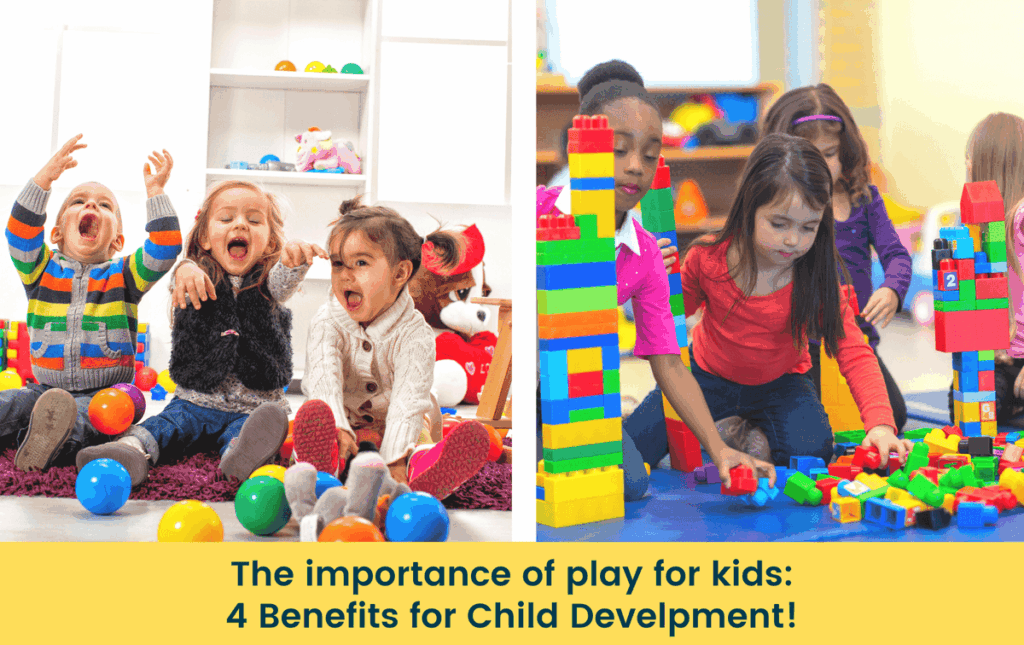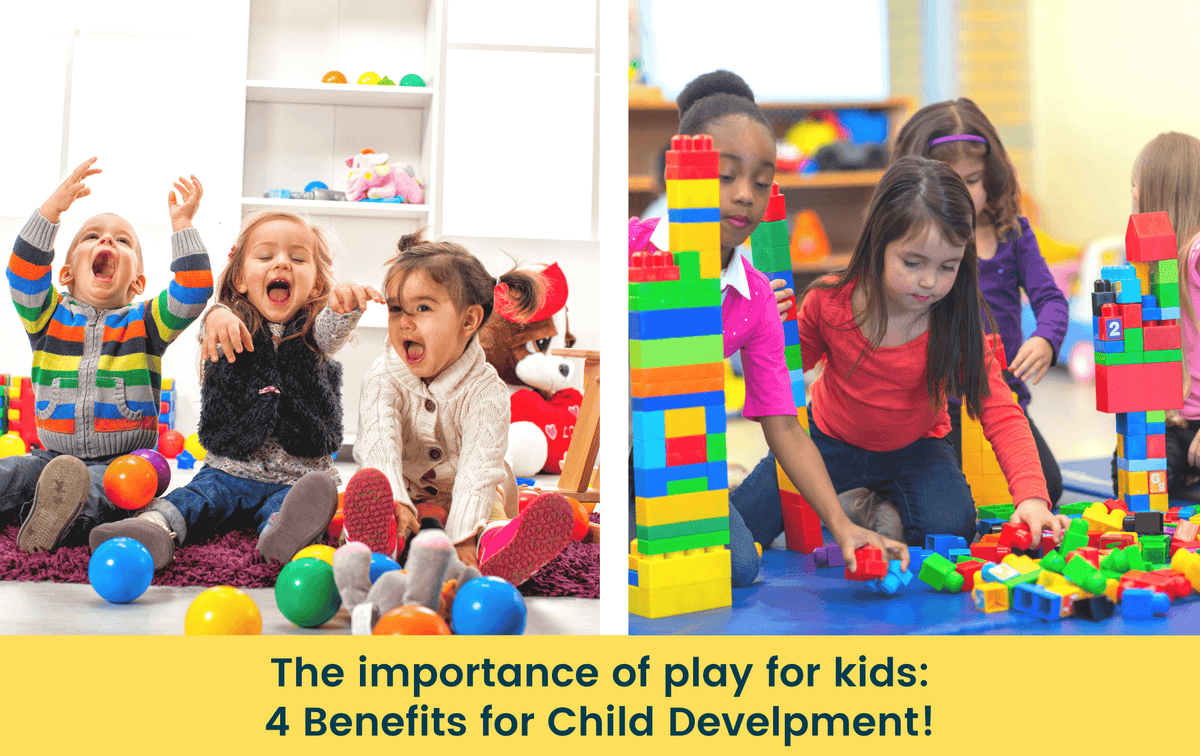
The Enduring Power of Play: Inspiring Quotes that Highlight Its Importance
In a world that often prioritizes productivity and achievement, the significance of play can sometimes be overlooked. Yet, the act of play, in all its diverse forms, is a fundamental human need, crucial for development, well-being, and lifelong learning. This article delves into the profound importance of play, exploring its benefits through insightful and inspiring quotes. From fostering creativity and problem-solving skills to promoting social-emotional development, play offers a wealth of advantages that extend far beyond mere entertainment.
The Essence of Play: Defining the Unstructured
Before we delve into the quotes, it’s essential to define what we mean by “play.” Play is often characterized by its voluntary, intrinsically motivated, and enjoyable nature. It’s an activity undertaken for its own sake, not necessarily for a specific outcome. It encompasses a wide range of activities, from imaginative games and physical exploration to artistic expression and social interaction. The beauty of play lies in its unstructured nature, allowing for spontaneity, experimentation, and the freedom to explore without the constraints of rules or expectations.
Quotes on the Cognitive Benefits of Play
Play is not just fun; it’s also a powerful engine for cognitive development. It stimulates the brain, fostering critical thinking, problem-solving skills, and creativity. The following quotes highlight this crucial aspect of play:
- “The creation of something new is not accomplished by the intellect but by the play instinct.” – Carl Jung
- “Play is the highest form of research.” – Albert Einstein
- “It is paradoxical that many educators and parents still differentiate between play and learning. For children, play is learning. Play is the most important form of learning.” – Vivian Gussin Paley
These quotes underscore the idea that play is not the opposite of work or learning; it is, in fact, a vital component of both. Play allows children to experiment, make mistakes, and learn from them in a safe and supportive environment. This process of trial and error is essential for developing problem-solving skills and fostering a growth mindset.
The Role of Play in Social and Emotional Development
Beyond cognitive benefits, play is also crucial for social and emotional development. Through play, children learn to interact with others, negotiate, share, and resolve conflicts. They develop empathy, learn to understand different perspectives, and build strong social bonds. The following quotes speak to this aspect of play:
- “We don’t stop playing because we grow old; we grow old because we stop playing.” – George Bernard Shaw
- “The best kind of therapy is play.” – Unknown
- “Children need the freedom and time to play. Play is not a luxury. Play is a necessity.” – Kay Redfield Jamison
These quotes emphasize the profound impact of play on our social and emotional well-being. Play allows children to practice social skills, manage emotions, and build resilience. Through play, they learn to navigate the complexities of human relationships and develop the emotional intelligence necessary for success in life.
Play and Creativity: Unleashing the Imagination
Play is the cornerstone of creativity. It provides a space for children to explore their imaginations, experiment with new ideas, and express themselves freely. The following quotes capture the essence of play’s role in fostering creativity:
- “The playing adult is the key to innovation.” – Unknown
- “Almost all creativity involves purposeful play.” – Abraham Maslow
- “The true object of education is to have a man know what is good and do it.” – Plato.
These quotes highlight the link between play and innovation. Play encourages children to think outside the box, challenge assumptions, and come up with new and innovative solutions. It’s a space where anything is possible, where children can let their imaginations run wild and create something entirely new.
The Importance of Play in All Stages of Life
While often associated with childhood, the importance of play extends throughout the entire lifespan. Adults, too, benefit from incorporating play into their lives. Whether it’s through hobbies, sports, or simply taking time for leisure activities, play can reduce stress, boost mood, and enhance overall well-being. The following quotes highlight the lifelong value of play:
- “The only way to do great work is to love what you do.” – Steve Jobs
- “There is no end to education. It is not that you read a book, pass an examination, and finish with education. The whole of life, from the moment you are born to the moment you die, is a process of learning.” – Jiddu Krishnamurti
- “You can discover more about a person in an hour of play than in a year of conversation.” – Plato
These quotes remind us that play is not just for children; it’s a fundamental human need that contributes to our happiness, health, and overall quality of life. Integrating play into our daily routines, regardless of age, can bring joy, reduce stress, and enhance our creativity and problem-solving abilities. The importance of play is undeniable.
How to Encourage Play in Children
Encouraging play in children is crucial for their development. Parents, educators, and caregivers can create environments that foster play by:
- Providing ample opportunities for unstructured play.
- Offering a variety of toys and materials that spark imagination.
- Creating safe and stimulating play spaces.
- Modeling playful behavior themselves.
- Limiting screen time and encouraging outdoor activities.
By prioritizing play, we can help children develop the skills and abilities they need to thrive in the 21st century. Recognizing the importance of play is the first step towards creating a world where children can learn, grow, and flourish.
The Future of Play and Its Significance
As we move forward, it’s crucial to continue advocating for the importance of play in education, parenting, and society as a whole. Research continues to reveal the profound benefits of play, and it’s time to integrate these findings into our practices. By fostering a culture that values play, we can create a brighter future for our children and for ourselves. The importance of play should be promoted.
The quotes presented in this article serve as a reminder of the enduring power of play. They inspire us to recognize the profound impact of play on our lives and to make it a priority for ourselves and for the children in our care. The importance of play is a timeless truth.
Conclusion: Embracing the Power of Play
In conclusion, the importance of play cannot be overstated. It’s a fundamental human need that contributes to cognitive development, social-emotional growth, and overall well-being. By embracing the power of play, we can unlock our full potential and create a more joyful and fulfilling life for ourselves and for future generations. Remember, the importance of play is critical to our development.
The quotes shared in this article offer a glimpse into the transformative power of play. They remind us that play is not just a pastime; it’s a vital component of human existence. By valuing and prioritizing play, we can create a world where individuals of all ages have the opportunity to learn, grow, and thrive. The importance of play is a gift we must cherish.
[See also: Benefits of Outdoor Play]
[See also: The Role of Play in Early Childhood Education]
[See also: How to Incorporate Play into Your Daily Routine]


